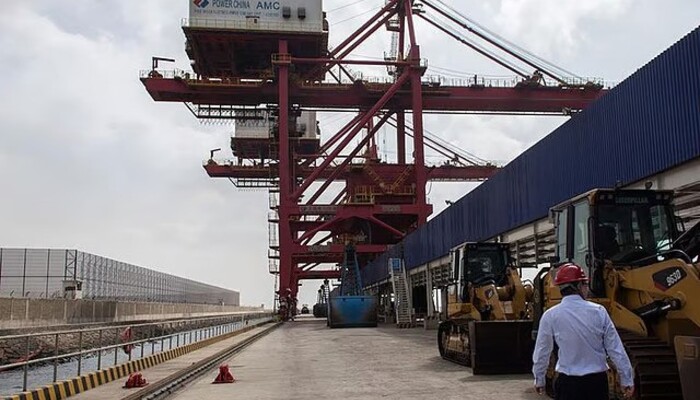In a major move to strengthen export facilitation, Pakistan has reduced export charges at Karachi’s Port Qasim by 50%. The Ministry of Maritime Affairs confirmed the decision, led by Federal Minister Muhammad Junaid Anwar Chaudhry, as part of a broader effort to uplift the maritime economy.
Key Port for National Trade
Port Qasim, operating since 1973, is the country’s second busiest port after Karachi Port. It handles 52% of Pakistan’s import and export cargo. This cut in export charges is expected to offer significant relief to exporters, especially those operating from Karachi and surrounding regions.
Minister Chaudhry stressed that this step would open up new economic opportunities. He called it a strong signal of the government’s support for the business community and its intent to simplify trade operations.
Read: Punjab Enforces Section 144 to Ensure Peace During Muharram
Export Charges and Cargo Impact
Cargo fees at Port Qasim previously varied by container size and cargo type. For instance, a 20-foot container carrying rice or food items cost around Rs10,580, while a 40-foot container was charged Rs14,430. The 50% reduction will directly lower these rates, giving exporters a major cost advantage.
This initiative is expected to help domestic producers compete in global markets, reduce logistical expenses, and encourage more exports through the port.
Green Shipping Push
In parallel with economic reforms, the ministry is promoting green shipping. Sustainable maritime practices are being encouraged to limit ecological damage, particularly around the Indus River Delta. This region, near Port Qasim, includes vast mangrove forests vulnerable to pollution and industrial activity.
The minister also highlighted the importance of protecting the coastline while advancing economic goals. He noted that preserving the marine environment would ensure long-term benefits for both trade and ecology.
Vision for a Blue Economy
This reform aligns with Pakistan’s broader blue economy strategy. The plan includes new maritime ventures, coastal development, and eco-friendly trade routes. According to Chaudhry, the aim is to unlock the untapped potential of the country’s vast coastline to boost exports and enhance the GDP.
Follow us on Instagram, YouTube, Facebook,, X and TikTok for latest updates
